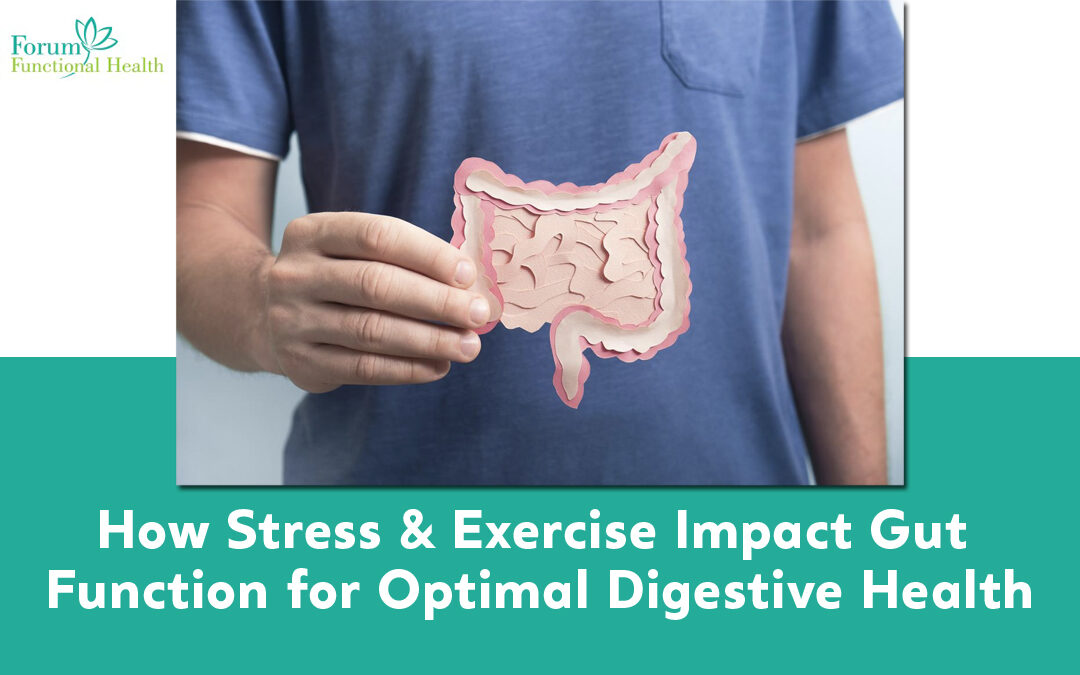Maintaining optimal digestive health is a cornerstone of overall well-being, as the gut plays a pivotal role in nutrient absorption and immune function. Recent research has unraveled the intricate relationship between stress, exercise, and gut function, shedding light on how these factors influence digestion. In this comprehensive guide, we explore the impact of stress and exercise on gut health and provide practical strategies for maintaining a robust digestive system.
The Connection between Stress and Gut Function
The gut and the brain are intimately connected through the gut-brain axis, where emotions and stress levels can directly affect digestive functioning. Stress triggers the release of hormones like cortisol, disrupting the delicate balance of gut bacteria and leading to dysbiosis. Chronic stress further hampers digestive muscle movements, slowing down digestion and increasing the risk of nutrient malabsorption and digestive disorders. However, effective stress management through relaxation techniques can positively impact gut function.
The Impact of Exercise on Digestive Health
Exercise emerges not only as a boon for physical fitness but also as a key player in maintaining optimal digestive health. Regular physical activity enhances blood flow to digestive organs, delivering essential nutrients and promoting efficient digestion. Exercise stimulates the muscles in the digestive tract, facilitating smooth movement of food and preventing common issues like constipation. Moreover, exercise acts as a stress-reliever, indirectly contributing to a balanced gut microbiome.
Incorporating both aerobic exercise and strength training is recommended for optimal gut health. Aim for 150 minutes of moderate-intensity aerobic exercise weekly, complemented by strength training exercises like weightlifting or yoga.
Tips for Managing Stress for Optimal Gut Function
Beyond exercise, various stress management strategies can be seamlessly integrated into daily routines:
Practice stress-reducing activities: Incorporate meditation, deep breathing exercises, or yoga into your daily routine to activate the body’s relaxation response and foster a healthier gut environment.
Prioritize self-care: Engage in activities you enjoy, such as reading, taking a bath, or spending time in nature, to reduce stress and support better digestion.
Get enough sleep: Aim for 7-8 hours of quality sleep each night to promote optimal digestive function and overall well-being.
Eat a balanced diet: Opt for a diet rich in fiber, fruits, vegetables, and lean proteins. Avoid processed foods, excessive sugar, and caffeine, which can contribute to stress and digestive issues.
The Importance of Incorporating Exercise for a Healthy Gut
Regular exercise is a cornerstone for maintaining a healthy gut. Physical activity not only reduces stress but also supports optimal digestive function by stimulating muscle contractions in the digestive system. It enhances blood flow to the intestines, creating an environment conducive to the thriving of gut bacteria, ultimately leading to improved digestion and a reduced risk of gastrointestinal disorders.
Professional Recommendations for Improving Digestive Health
For those seeking professional guidance, several recommendations have proven effective in promoting optimal gut function
maintain a well-balanced diet: Include fiber-rich foods such as fruits, vegetables, whole grains, and legumes to promote healthy digestion and prevent constipation.
Incorporate probiotics: Found in fermented foods like yogurt, kefir, sauerkraut, and kimchi, or through supplements, probiotics introduce beneficial bacteria to the gut, supporting a healthy digestive system.
Stay hydrated: Proper hydration aids digestion by softening stool, facilitating smooth movement through the digestive tract. Aim for at least eight glasses of water daily, adjusting for intense exercise or hot weather.
When to Talk to Your Doctor
Ensuring optimal digestive health is essential for overall well-being, and while dietary changes can be beneficial, it’s crucial to recognize that not all gut health issues can be addressed through simple adjustments to your diet alone. If you notice persistent or worsening digestive health concerns, it’s imperative to seek guidance from a Forum functional health care certified doctor. These professionals specialize in a holistic approach to health, considering the interconnectedness of various bodily systems.
A Forum functional health care certified doctor possesses the expertise to assess your symptoms comprehensively, taking into account factors beyond diet, such as stress levels and lifestyle. If you suspect that your symptoms may have broader implications for your overall health, reaching out to a certified doctor is paramount. Don’t delay seeking professional guidance, as early intervention can significantly impact long-term health outcomes.
Prioritizing your digestive health involves a proactive approach, and a certified doctor can guide you through personalized strategies to address stress, dietary concerns, and overall well-being. Take the first step towards comprehensive digestive health by consulting with a qualified professional who can provide tailored insights and interventions to support your specific needs.

